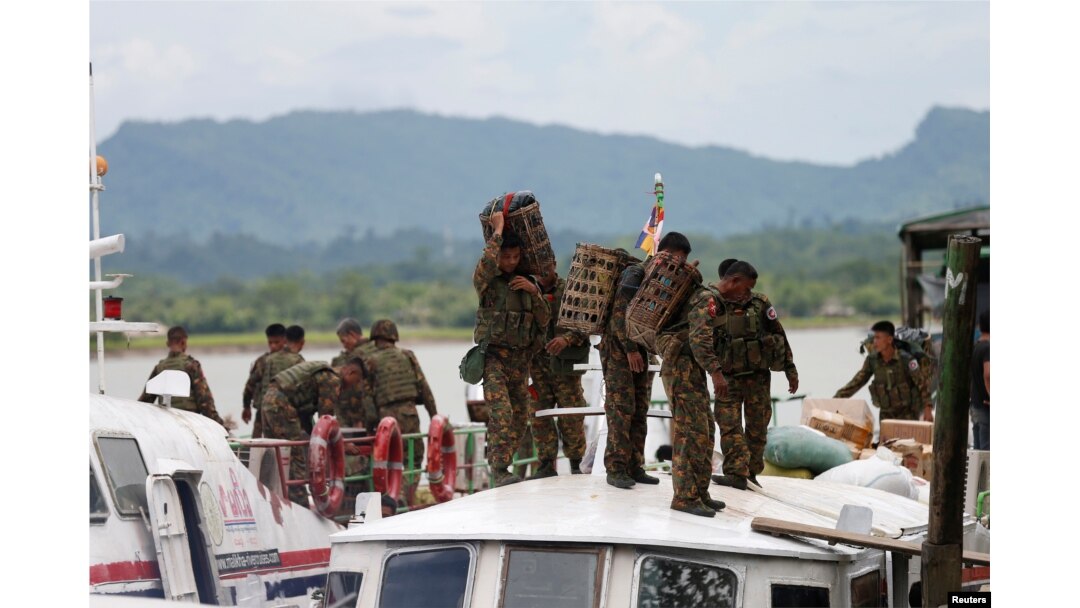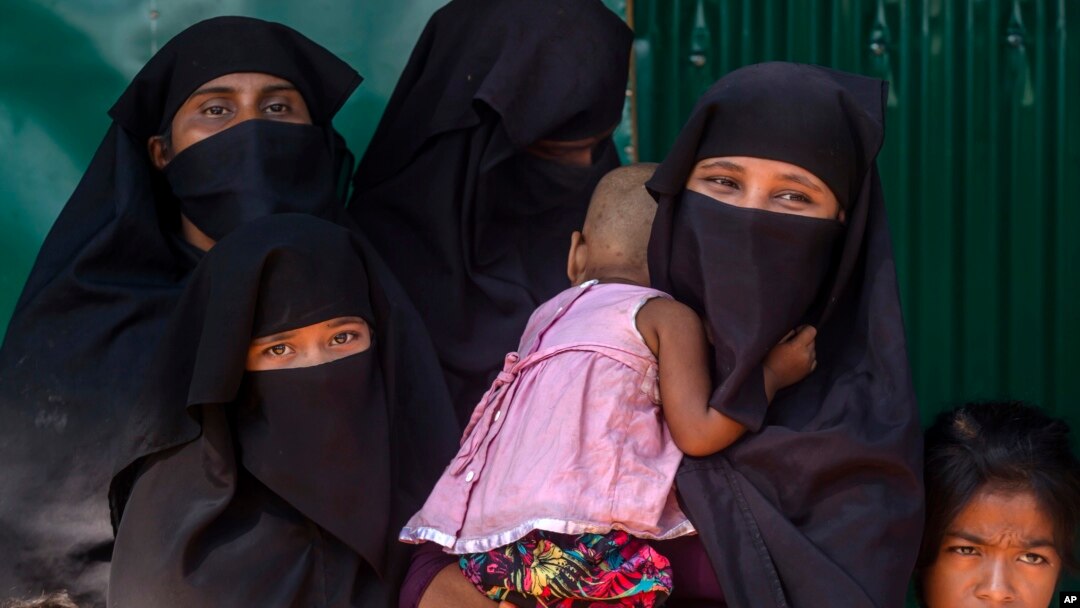The rape of Rohingya women by Myanmar's security forces has been "sweeping" and "methodical," according to a report by the Associated Press.
The news agency says a "sickening sameness" has emerged in 29 interviews with women and girls, ranging in age from 13 to 35, who fled to Bangladesh from Myanmar.
Each woman said she was raped by a group of men.
Every woman, except one, said her rapists wore military-style uniforms. The one woman who said her assailants wore plain clothes also said that her neighbors recognized the men as being stationed at the local military outpost.
Many of the women said their assailants' uniforms had either star or arrows on them. AP says the patches "represent the different units of Myanmar's army."

FILE - Myanmar soldiers arrive to Buthidaung jetty after Arakan Rohingya Salvation Army's (ARSA) attacks, at Buthidaung, Myanmar, Aug. 29, 2017.
The women's assaults took place between October 2016 and mid-September in "a wide swathe of villages in Myanmar's Rakhine state," the news agency says.
AP says doctors and aid workers are "stunned" at the volume of rapes, but "suspect only a fraction of women have come forward."
Doctors Without Borders told AP that they have treated 113 sexual violence survivors since August, with a third of them under 18 and the youngest was nine.
Crystal van Leeuwen, a Doctors Without Borders official, said "The stories that they are telling us, and not only the victims themselves, but that other people are telling us about witnessing acts of sexual violence in Myanmar, make us feel that we're only capturing a very small proportion of the victims."
AP says the women's accounts "bolster the U.N.'s contention that Myanmar's armed forces are systematically employing rape as a 'calculated tool of terror' aimed at exterminating the Rohingya people."
AP says Myanmar's security forces refused "multiple requests" for comment. The agency said the military conducted an internal investigation in November and "concluded that none of the assaults ever took place."
A Rohingya Muslim woman, who crossed over from Myanmar into Bangladesh, holds her 10-month-old son inside her shelter in Thaingkhali refugee camp, Bangladesh, Saturday, Oct. 21, 2017.
Aung San Suu Kyi, Myanmar's civil leader and a Nobel Peace laureate, has come under strong criticism from the international community over what some officials say has been her slow response to the crisis. She has said there has been "a huge iceberg of misinformation" about the plight of the Rohingyas.
The Rohingya minority have been denied citizenship and other rights in Buddhist-majority Myanmar, which views them as immigrants from Bangladesh despite the fact that many families have lived in Myanmar for generations.
Myanmar's military has been accused of launching a scorched earth campaign against Rohingya villages in response to attacks on Myanmar police outposts in northwestern Rakhine by Rohingya militants in August. The campaign led to a mass exodus of 600,000 Rohingyas into neighboring Bangladesh, who told human rights groups of serious atrocities committed by government security forces, including random shootings, rapes and setting fires to villages.
The U.N. has described the reported actions carried out by Myanmar forces as "a textbook case of ethnic cleansing."


